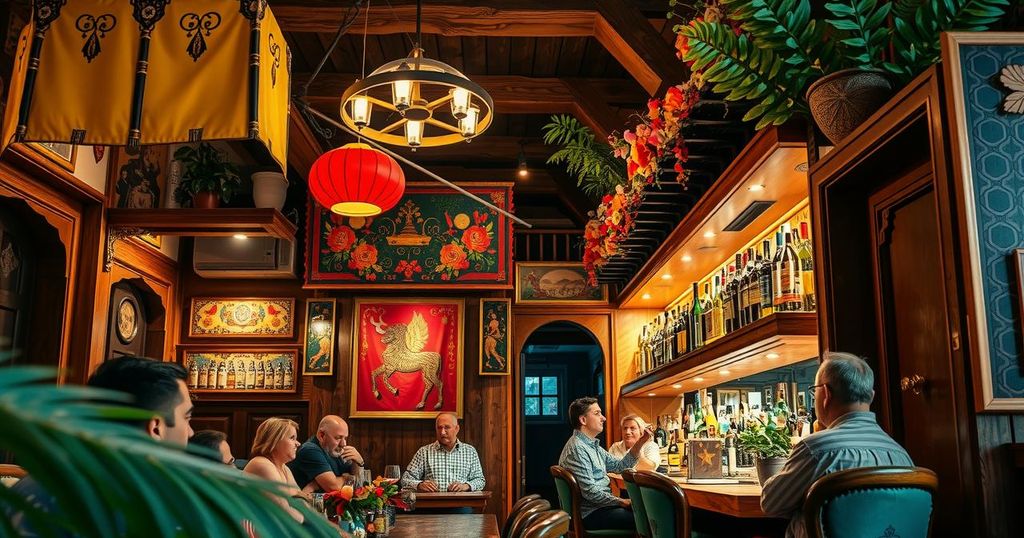Syrian authorities have reversed their decision to close bars and restaurants in Christian-majority areas of Damascus after public outcry. The closures initially resulted from enforcement of licensing regulations but faced backlash before authorities ordered the reopening of these establishments. Issues of identity and community rights emerged prominently in public discourse.
Syrian authorities recently retracted a decision to close bars and restaurants in predominantly Christian areas of Damascus following backlash from the public. This change was reported by local witnesses and the media on Friday. The closures initially occurred due to the lack of licenses for selling alcohol and were perceived as a threat to the rights and identity of minority communities.
An AFP journalist observed that approximately twelve establishments in the Old City of Damascus were closed on Thursday evening. The decision prompted significant pushback on social media platforms as many expressed their discontent. According to the news outlet Enab Baladi, an official document had been issued to enforce these closures.
This situation was particularly concerning for local businesses, with reports indicating that about 250 restaurants in neighborhoods such as Bab Tuma and Bab Sharqi faced similar restrictions, especially during the Muslim fasting period of Ramadan. Subsequently, a decree was released to reopen these establishments, suggesting a swift response to public opinion.
George, a bar owner from Bab Sharqi, observed that enforcement began with joint police and municipality patrols, which he described as detrimental to the community’s character and the livelihood of many families. However, the establishments were reopened following discussions between the governor and business owners.
Jenny Wheibe, a waitress, characterized the closures before key religious celebrations as “unjustified”, while Ziad Isaac, a shopkeeper, emphasized a need for respect towards the identity of Christian communities amidst the Muslim majority.
The reversal of bar closures in Christian areas of Damascus highlights the ongoing struggles of minority communities in the region. The swift response of authorities to public outcry reflects the importance of preserving local identities and the economic impact such measures can impose. Ensuring a balance between majority and minority rights remains a significant challenge in post-conflict Syria.
Original Source: www.newarab.com






